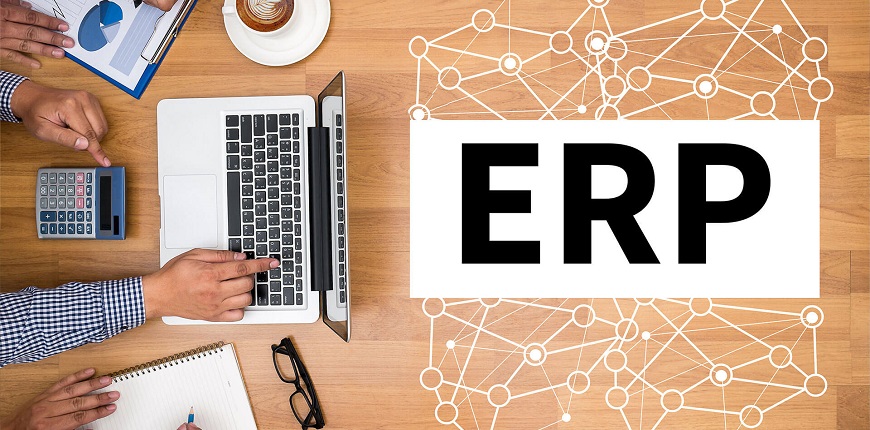Because of the recent surge in online shopping, integrating Magento 2 with ERP has become a critical business requirement. In particular, the ERP Magento 2 systems. In the current COVID-19 pandemic, the need for businesses to have an eCommerce presence has boosted. Companies are under increased pressure to retain employees, protect current and future revenue, and meet rising consumer demand.
According to an e-commerce trends survey conducted by SearchNode, 90% of eCommerce businesses interviewed saw an increase in online sales during the first lockdown, with 50% claiming revenue increased by more than 100%. This means that online sellers have to process more orders with fewer resources.
So, what is the solution to this issue? Whether you specialize in B2B or B2C environments, digital transformation through the integration of your Magento store with your ERP system will provide you with the tools you require. This bridge, eCommerce integration, will assist you in processing more orders and increasing your company’s output in a timely, efficient, and error-free manner.
The article below is what you are looking for, and The Magento API enables simple ERP software integration. The vendor can customize it to provide innovative features that will help you define how integrating Magento 2 with your ERP system will give you a competitive edge. Let’s get started now!
Overview: ERP Magento 2
Table of Contents
What Is An ERP System?
ERP is an acronym for Enterprise Resource Planning. This model applies information technology to manage the entire production and business activities in particular or an enterprise in general. The ERP system for eCommerce stores is a tailored solution based on the original ERP software best to meet the needs of businesses on the eCommerce platform. Specifically, this software will support the management and optimization of business processes of eCommerce enterprises based on a single centralized database system.
Ventors developed ERP solutions to help businesses solve the problems of today’s market demand. In addition, this solution is suitable for companies in the retail system with large business chains. Therefore, ERP software for the eCommerce industry is expected to be a powerful tool to help retail organizations improve their competitive position.
In short, an ERP system is a kind of multi-functional, multi-department management software solution that can be used by an enterprise or an organization to collect, store, manage and analyze data from its operations. Mainly, it includes product planning, costing, production, service provision, marketing and sales, delivery, and payment.
What Are The Benefits Of Using ERP Systems?
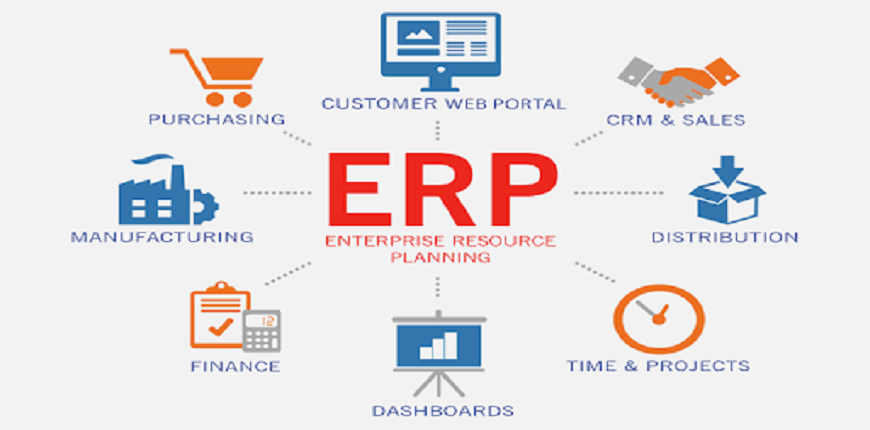
Consolidating business activities into a unified system has tangible benefits for businesses of all sizes and infrastructures. However, such unification is extremely difficult because organizations customize their strategies using the best software from various vendors. ERP Magento 2 is extremely useful in this regard. There are numerous advantages to implementing ERP. The Magento API enables simple ERP software integration and can be customized to provide innovative features.
- Reporting & planning: At any time, the ERP solution for Magento can generate valuable reports and analyses. You can analyze and compare functions across departments without the hassle of multiple spreadsheets, emails, and other documents.
- Proper forecasting: ERP Magento 2 software assists eCommerce businesses in anticipating and planning their needs, which range from inventory and sales to financial services and customers. With proper forecasting, you can save business costs while also becoming a more proactive entity.
- Mobility: An ERP system for Magento 2 provides access to a centralized database, allowing you to work from wherever you want using various electronic devices.
- Data security: Because ERP uses a single input system, it maintains a relatively high level of data security. That is, it will boost the accuracy, consistency, and security of your company’s data.
- Streamline the process: The ERP platform eliminates the need for process repetition and reduces manual data entry. This increases the productivity of the Magento store and removes the possibility of incorrect data entry, which can lead to costly business mistakes.
- Collaboration: ERP simplifies the collaboration process by giving employees access to the data they need. It also enables real-time project actions to be updated and improved communication across the organization.
Discover more significant benefits of using an ERP Magento 2 here.
How does ERP Magento 2 System Help Your Companies?
The biggest hope for ERP is improving order processing and revenue, profit, invoicing, etc. These are called fulfillment processes. For this reason, ERP is often named a “solid partner” for the office. Here are the unique capabilities that ERP Magento 2 system can help your online store.

Manage Customer Information
Because the ERP solution for Magento’s data is located in one place, all employees can access and view customer information. Some staff with the right can easily change information without fear of customer data not being updated across different departments.
Speed Up The Process Of Providing Goods And Services
ERP Magento 2 can serve as a tool to help automate part or all of the sales process, from product preparation to shipping, inbound and outbound management, packaging, and more. Using only one computer system can save time, reduce costs, increase productivity, and reduce the amount of personnel required. Managers can view all company metrics in one unified interface without moving from one area to another to get information.
Control Quality And Manage Project
ERP helps businesses check and track the consistency in product quality and plan and allocate human resources appropriately according to project needs. I know that ERP can also automatically check in the database to see which employees have which strengths and then assign them to each project task. The manager does not have to spend much time at this stage.
Organize Business Finance & Handle Inventory
ERP system for Magento 2 will help summarize everything related to finance in one place and only one version of the data, limiting negative and misjudgments of managers about the performance of the business. ERP can also help create financial statements according to international standards such as IFRS, GAAP, etc.
Moreover, ERP helps control how many goods are left in the warehouse and where the goods are located. This helps companies reduce the materials they keep in their warehouses, only adding more when needed. For example, the word Planning in ERP means assisting businesses to plan their activities. All will help reduce costs, reduce the number of people required, and increase work speed.
Standardization Of Staff Activities & Support Internal Communication
Thanks to ERP, human resources can keep a close eye on working hours, hours of leave, and how much work each employee has done (calculating salary and other benefits). And it can even work in many different departments and different geographical areas.
Finally, ERP helps the interaction of employees in a company in the fastest and most convenient way. Through small operations, individuals of a company can communicate with one or more employees very quickly. Timely update mutual information to help business activities become more synchronous.
See More Magento 2 tutorials for developers and merchants here.
Top 5 ERP Magento 2 Systems Review 2021
SAP Business One
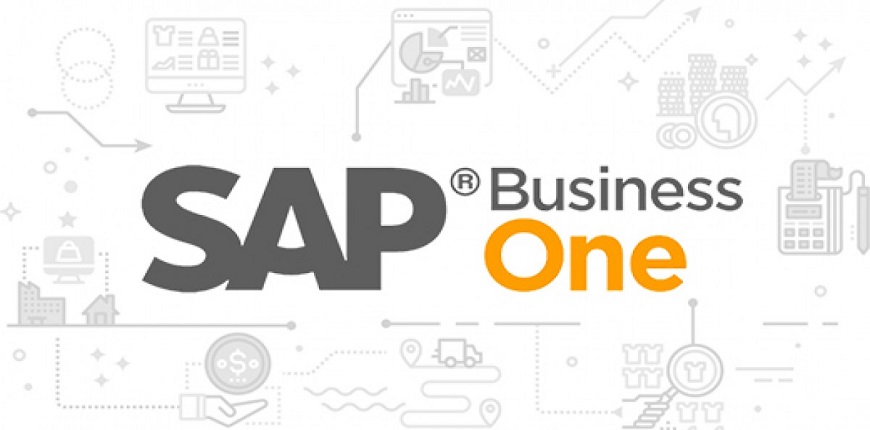
ERP solution for Magento is the management software that many e-commerce stores are interested in its feature. SAP Business One is one of the most popular management applications. This software is often used by mid-range companies. With its powerful applications, the software can help you predict and participate in your business results. This software can help you in many areas where you are operating, helping you reduce operational costs effectively, such as CRM, accounting, administration, supply chain. Many e-commerce stores have used and rated SAP as one of the best software on the market.
Read more: 8 POS for SAP ERP to integrate data and streamline operations (2023)!
Highlight feature:
- Refresh financial data in SAP Business One, includes latest, current, and guest profiles, based on Magento purchase order.
- The software will automatically deliver customer orders to Magento.
- SAP also helps the store check for errors and sends you a notification if there are any problems.
- Product information, item number, volume, client payment information, shipment type, and a credit card are downloaded automatically.
- If there is a change in the product’s price, the software will automatically synchronize between the two platforms.
- Create receipts and pays for incoming accounts receivable, invoices and payouts automatically.
Pros:
- Quick Deployment
- Simply update stock, promotions, prices with Magento
- Forecast and analyze quickly
Cons:
- The price of this software is relatively high. It ranges from $3000 to 7000 items for extensions.
- There may be some features of SAP that you may not use.
Pricing:
SAP Business One is in the price range of $350 a month, which is relatively stable than other software. The software’s quality is very reputable; if you’d like to learn about package pricing, contact SAP Business One support.
Sage 200

The Sage 200 order management system from Codeless Platforms lets you manage the importing and publishing of client information, requests, items, inventory, and price using a set of predefined actions. By eliminating repeated staff data input throughout databases and the possibility for mistakes, ERP Magento 2 integration with Sage 200 with BPA allows you to eliminate the hidden expenses typically coming from e-commerce.
From there, the software will provide you with solutions to integration between Magento 2 with Sage 200. Provide your store with the necessary tools and applications for business.
Highlight feature:
- Automatic purchases, covering product information and barcode, amount, client accounting information, pricing structure, a form of payment, and so forth.
- It connects Magento purchases to different holding accounts, such as WEB.MAGENTO or WEB.eBay, and so on.
- Generate inbound repayments in response to requests.
- The supply chain on Sage 200 is updated daily.
- Product changes, such as SKU, title, taxation type, size, purchase price, storage amount, and so on, may be automated.
Pros:
- Sales volumes are more visible.
- Magento inventory control operations may be made more efficient.
- Reduce the time it takes to process an order from start to finish.
- Boost efficiency while lowering operating expenses.
- Frequent data collection and accompanying administrative mistakes are no longer a problem.
Cons:
- Because the program is only accessible over the internet, it is tough to use when internet connections are sluggish and, therefore, there is no network at all.
- Frequent software upgrades require you to log back in but don’t forget your username And password because it might be inconvenient.
Pricing:
Sage 200 solution for Magento integration is sold for $175 per month. This is a reasonably affordable price for startups and small shops. Please contact the company’s support team for detailed information.
Microsoft Dynamics NAV
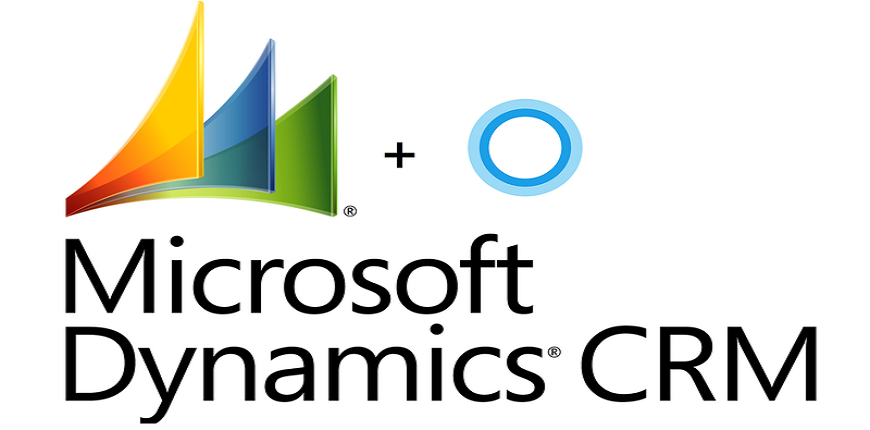
E-commerce by The Microsoft Dynamics NAV Solution includes a set of preset activities that let your store easily integrate Microsoft Dynamics NAV to Magento or manage critical eCommerce operations. It eliminates the need for manual management, such as collecting and publishing requests, customer information, goods, inventory, or cost.
The Magento Microsoft Dynamics NAV ERP solution for Magento simplifies order management procedures, eliminates mistakes through repeated administrations, and improves information exchange after it is deployed.
By optimizing the fundamental tasks surrounding a profitable e-commerce business, this established and expense software for Microsoft Dynamics NAV with Magento will revolutionize the way you handle customers and control items, inventory, and prices.
Microsoft Dynamics NAV is highly beneficial for human resource management and finance-related issues in an organization. There are also controllers and data, which allows you to interact with consumers throughout the world while also making informed judgments.
Highlight feature:
- Warehousing procedures can be automated
- Manage client accounts for new accounts, bank deposits, providing information, accounting addresses, and more.
- Nodes identified from Magento to Microsoft Dynamics NAV may be automated
- Publish the state of Dynamics NAV purchase requisitions to Magento directly.
- Microsoft Dynamics NAV stockpile changes may be automated
Pros:
- Magento inventory control operations may be made more efficient.
- Reduce the time it takes to process an order from start to finish.
- Workforce development improvements and payment statistics
- Increase productivity while lowering operating expenses.
Cons:
- Some extensions can be a bit too expensive.
- Some functions of the software require you to have high technical skills.
Pricing:
Microsoft Dynamics NAV integration software comes for $350 a month. For more information about the pricing of annual plans, contact Microsoft Dynamics NAV.
Epicor
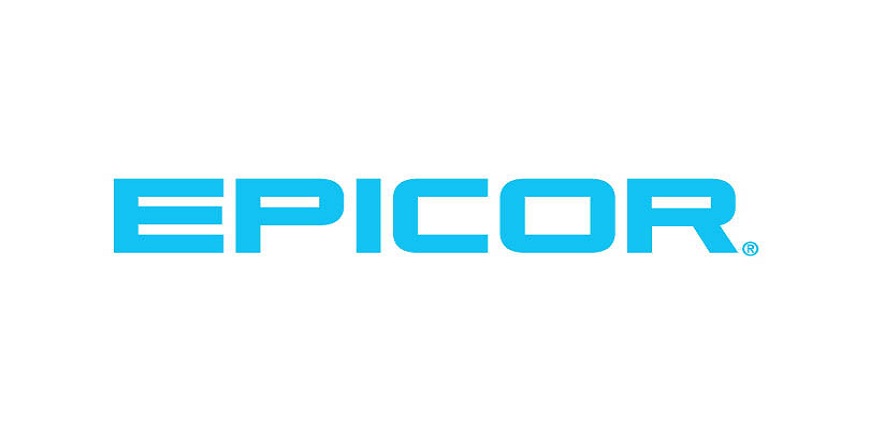
Epicor ERP is indeed a flexible manufacturing software application used to organize business operations across the organization. Financial management, staffing, consumers, suppliers, inventories, marketing, and manufacturing operations management are all areas where Epicor software excels. Epicor Commerce Connect enables seamless integration with Magento, helping eCommerce stores synchronize operations and data in real-time. Epicor is offered as a cloud-based ERP Magento 2 solution.
In addition, Epicor Solutions Company is always looking for innovative ways to integrate cutting-edge technology with its ERP system. Epicor, besides examples, utilizes Artificial Intelligence to interconnect equipment on the production floor with monitors and electronic control units in its Modern manufacturing solution, which interacts smoothly with Epicor ERP.
Highlight feature:
- Product dimensions process, product design, personal finance, and human resource management, etc.
- Epicor produces sales orders and collecting payments, as well as client and storage updates and product descriptions.
- It allows you to create consolidated invoicing, export inventories, consumer exports, outgoing products, outgoing posed bank statements, shipping exports, and overseas sales orders.
Pros:
- Your store can also easily integrate with many flatforms like IBM AS400, Eclipse, JD Edward, etc.
- The software uses real-time integration to the shop floor for quality management, process monitoring, production scheduling, etc.
- Gives the manager a range of tool to make a more accurate forecast.
Cons:
- Some decisions are more challenging to make than they would otherwise be, and it might be challenging to get a concrete understanding of how to make certain adjustments.
- It is crucial to highlight that Epicor must also add many features, which slows down the workflow and inhibits production, which is a significant issue because these functional components must be merged.
Pricing:
The overall price of Epicor is determined mainly on the users, features, and business processes software packages chosen. Epicor ERP is a commercial software solution for the mid-market.
SYSPRO
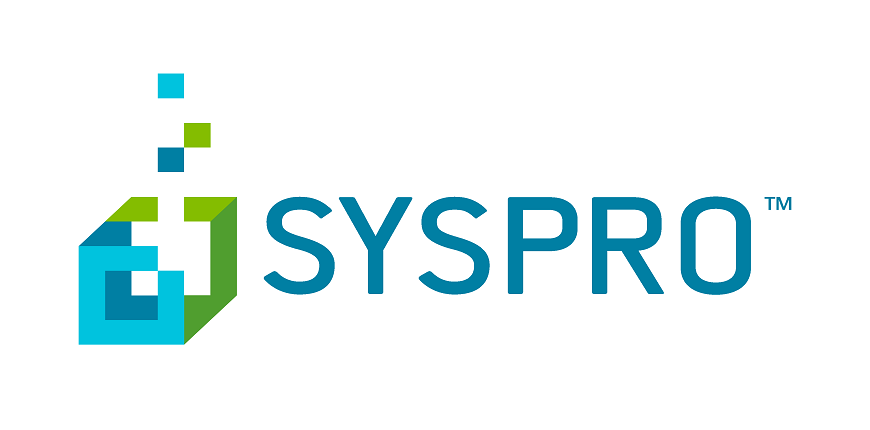
SYSPRO is an ever-evolving manufacturing ERP system for Magento 2 that helps Manufacturers and Distributors streamline their processes and create immense benefits. Besides, this system enables you to digitalize your store and streamline your supply chain by giving you complete visibility and improving and customizing your experiences.
Highlight feature:
- Inventory control systems allow you to save more energy, money and improve the customer experience while lowering prices.
- For shops, system, manufacturing processes, and dynamic routing contexts deliver a unique degree of schedule, budget, and quality standards of manufacture.
- Organize a company’s operations and demands so that inventories are kept in the appropriate best possible quality.
- Streamline quotations and monitor pricing fluctuations and promotional events in every currency from a centralized platform.
Pros:
- It has a sound inventory management system.
- Searches are fantastic, and the SQL backbone allows writing reports a breeze.
- The user experience is fundamental and straightforward to useVeryy nicely built and completely configurable by the user or through the executive’s role.
Cons:
- Purchases, inventory data, and invoicing are not available in built-in printed formats.
- Cashback is tough to generate and execute without the assistance of IT.
- It’s challenging to assign privileges to various modules.
Pricing:
Although SYSPRO has not announced the price, this software still has a free trial version for users to experience. The cost of the software depends on the size of your store. So please contact the support team to get more advice from the support team about pricing.
How To Choose The Right ERP Magento 2 For Your Store?
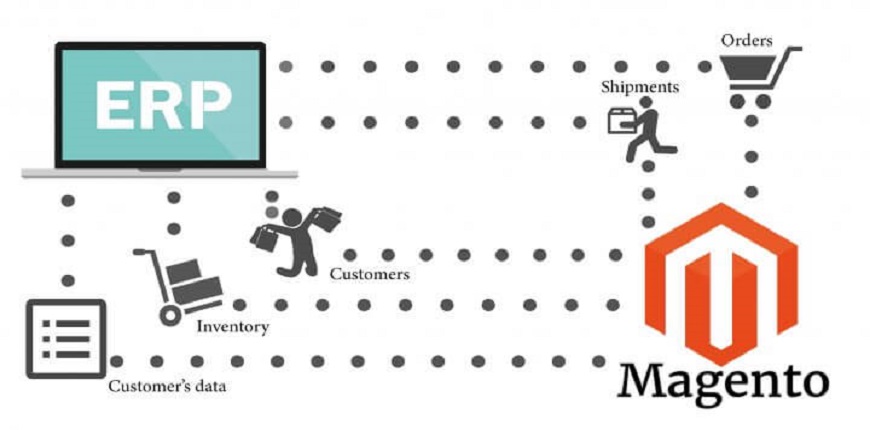
ERP Magento 2 is an essential component of the eCommerce function, serving as a critical mechanism for lowering costs and improving the consistency of the services you provide to your customers. There is no such thing as a best or worst ERP system for Magento 2. The ERP system you select will be determined by several factors, including business size, the functionality required, industry specialization, whether you are B2B or B2C facing, and the modules required, such as manufacturing, procurement, and HR, among others.
Long-term Reliability
A strong track record speaks for itself when it comes to success. Aside from having fantastic customer service, powerful software expectations, and excellent customer service, you can undoubtedly believe a dependable ERP Magento 2 provider is in it for the long haul, with a keen interest in your current and future claims.
Company Size & Industry Specialization
Every industry has its own set of challenges, and each firm is unique. By partnering with ERP, which has a good reputation in your sector, you may get industry-focused solutions while embracing and adapting your individuality. You will undoubtedly benefit from the experience and insights of those who understand your business’s benefits.
Besides, while ERP Magento 2 benefits both large and small enterprises, different solutions may be tailored to given business size, offering more complicated or, on the contrary, simple capabilities.
Lastly, depending on the product types (essential, bundled, grouped, or configurative), make sure the ERP system for Magento 2 you want to employ allows you to integrate them into the system to ensure no data is lost.
Feature
First, when correctly applied, the technology functions well. The ERP supplier must have the skills and knowledge to adhere to the best project management techniques while adhering to all controls and objectives to satisfy your expectations. Check out other customers’ reviews and ratings to ensure you’re selecting the right ERP supplier. The eCommerce platform you choose should be ERP-integration-compatible.
Second, the underlying technology of an ERP solution for Magento was not once a big concern. When selecting a new system, the critical issue was the software functionality. However, technology is constantly evolving; in fact, changing the ERP software is much higher than the cost of the software itself. As a result, for a better investment, look for an ERP system for Magento 2 based on newer technology and provide longevity in the long run.
In short, a good ERP Magento 2 must have the following features:
- CRM module
- Production management module
- HR module
- Analytical module
- Financial module
Support
Your team must receive adequate support and training to utilize the ERP system fully. In addition, the service provider should provide easily accessible online training materials and tutorials. Its services do not stop with implementation; it also offers post-implementation support. According to statistics, the most popular choice among eCommerce businesses is to use Magento 2 for eCommerce stores because it is one of the most popular eCommerce platforms.
Especially when you are new to a platform, choosing one with good and fast support is essential. Indeed when you are inexperienced, the available instructions are not enough for you, so who will solve these problems? The support team of the platforms will do this. So, check out the user reviews about the platform’s support.
Price
ERP vendors use two pricing models, depending on the type of deployment: perpetual licensing and subscription plans. Here’s how it works:
Companies that choose to host ERP Magento 2 software on their servers (on-premise deployment) typically pay a perpetual licensing fee. This one-time fee is paid in advance and is determined by the number of users and level of customization. Furthermore, perpetual licenses do not typically include recurring costs such as maintenance, support, and upgrades.
Subscription plans – Businesses can also pay a subscription fee to access cloud ERP software, maintained and hosted by the vendor on a third-party data server. The software-as-a-service (SaaS) pricing model requires fees to be paid monthly or annually per user. In addition, subscription plans frequently need a minimum contract period and come in several levels with increasing capability and modules.
FAQs: ERP Systems For Magento 2
Which ERP Solution Should I Choose, Cloud Or On-premise?
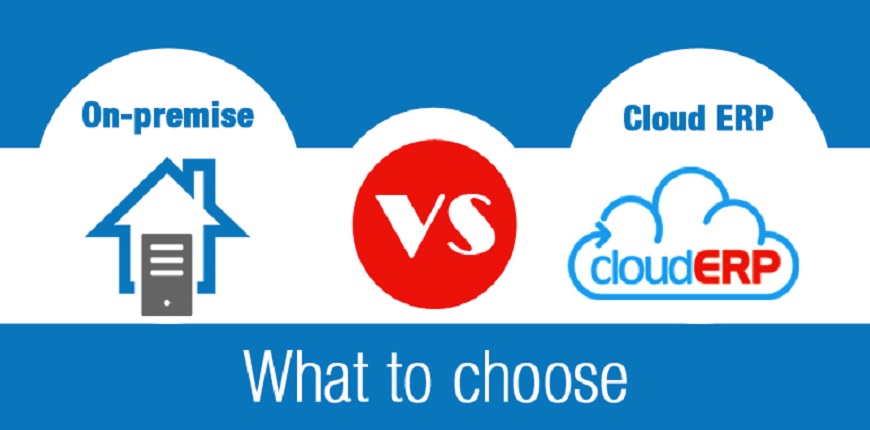
Magento offers three different merchant solutions: community, cloud, and enterprise. There may be other ERP options for your business, depending on the version you’re using.
- Cloud software, also known as Software-as-a-Service (SaaS), is hosted on the vendor’s servers and can be accessed via a web browser.
- On-premise software is installed locally on the computers and servers of a business.
Some vendors also provide “hybrid” deployments, in which cloud software is hosted on a company’s private servers.
It is a fact that there are more ERP options than ever before for businesses of all sizes when it comes to selecting a new ERP system. Cloud-based deployment models have made this software more accessible to small and medium-sized enterprises (SMBs). However, these systems have some drawbacks, such as limited customization and potential security concerns.
On the other hand, on-premise ERP systems provide advantages in customization and control, but they are more expensive up front, and many do not support mobile. This can be a problem for smaller buyers, but it all depends on the specific needs of the individual business.
In case you need to find a Magento web builder, then go here.
How Much Is ERP Magento 2 Solution?
Implementation costs for small to medium-sized organizations range variously. The total quotation will depend on which ERP solution you choose for your Magento 2 website, which data and workflow you connect between the systems and your current Magento 2 website status. Companies that cannot afford high up-front implementation costs should choose a cloud deployment, which does not require hardware installation and may not provide customization.
And yet, the ERP system for Magento 2 frequently necessitates additional resources that are not usually included in the base pricing, such as IT staff, customer support, maintenance, and upgrading.
Besides, because firms do not have to pay a licensing fee to access the source code, open-source ERP Magento 2 can be less expensive than proprietary ERP solutions. The disadvantage is that organizations must have experienced IT professionals set up and maintain the program, particularly when there is frequently a lack of support and documentation.
Conclusion
I believe that ERP Magento 2 is the perfect choice for Magento store owners. Not only will it save you time, but the cost will also be significantly reduced when only one system is needed.
With all the information above, I hope this article will be of help to you. If you need help with your Magento store, then don’t hesitate to contact us here.
